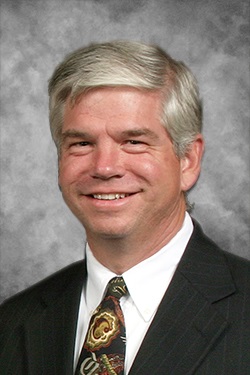It has been said that capitalism works for a very simple reason: People can be counted on to do what is in their own interest. That has been the basis of human interaction since the beginning of time. One villager would catch fish and sell them to others, which helped the fisherman succeed, but also helped the others, who needed fish. In fact, the only way to make money in a free market is to supply others with something they need, and are willing to pay for. Selfishness does not profit unless it also helps others.
Government can never alter that essential motivation of human nature. Incentives drive all human behavior. If something isn’t working well, it is often because the incentives are wrong. Consider our modern approach to environmental issues, an enforcement system based on expecting people to do what is clearly not in their own interest. No wonder it so often results in controversy, confrontation, and litigation. It doesn’t have to be that way.
The Endangered Species Act is the poster child for backwards incentives. In 2010, the U.S. Fish and Wildlife Service was poised to take a fresh look at the problem under the leadership of a new director, Sam Hamilton, but his life was tragically ended by a heart attack. Mr. Hamilton had studied the problem throughout his 30-year career with the agency, and reached his now-famous conclusion — that there is no mechanism for private landowners to benefit from investing in species conservation. “The incentives are wrong here,” he said in several speeches. “If a rare metal is on my property the value of my land goes up. But if a rare bird is on my property the value of my property goes down.”
It is a crucial point because so much habitat conservation relies on private landowners. In fact, the vast majority of all habitat for endangered species is on private land, so recovery cannot happen without the participation of landowners. Shouldn’t it be in their own interest to invest in conserving that habitat?
Aldo Leopold’s famous essay on “Conservation Economics” warned of “the time-honored supposition that conservation is profitable.” He thought long and hard about how to deal with private land that is also critical habitat. He concluded that conservation becomes possible on private lands when it also becomes profitable. In 1934, he wrote simply “that conservation will ultimately boil down to rewarding the private landowner who conserves the public interest.”
Instead, our heavy-handed system won’t even consult landowners in many cases, opting for government control and punishing the lack of “cooperation.” Such an approach has never worked — in 40 years we have recovered and de-listed fewer than half of one percent of endangered species — and it never will.
The Endangered Species Act was supposed to provide a carrot and stick, but today it’s all stick. Its sweeping prohibitions on activities that might affect a species or its habitat have created the exact opposite incentive for landowners. “Shoot, shovel, and shut up” is not a joke; it is standard operating procedure. But again, it doesn’t have to be this way.
Think about the tremendous activity often accompanying efforts to avoiding a species becoming listed in the first place. Innovation and cooperation among landowners, local governments, and conservation groups can be tremendous. Colorado spent more than $50 million preserving thousands of acres of habitat in the effort to avoid listing of the Gunnison sage grouse. Yet despite that 20-year commitment, the federal government simply could not get past its single-minded focus on listing, regulating, and controlling. Similar efforts to avoid new listings in other states have met with similar broken promises and bad-faith outcomes because the incentives are backwards.
What if those incentives were reversed? What if landowners were paid to create and preserve habitat, or better yet, to raise endangered species as efficiently as they raise livestock? What if landowners knew that if a species’ population fell below a certain number it would be listed — and if its population rose above a defined number it would be de-listed? Those would be very powerful incentives for recovery of hundreds of endangered species. Some people might even make money by providing a service the rest of us want and are willing to pay for.
There is nothing inherently wrong with self-interest. Policymakers should take Leopold’s advice and find ways to make endangered species assets for landowners instead of liabilities by rewarding the private landowner who conserves the public interest.




